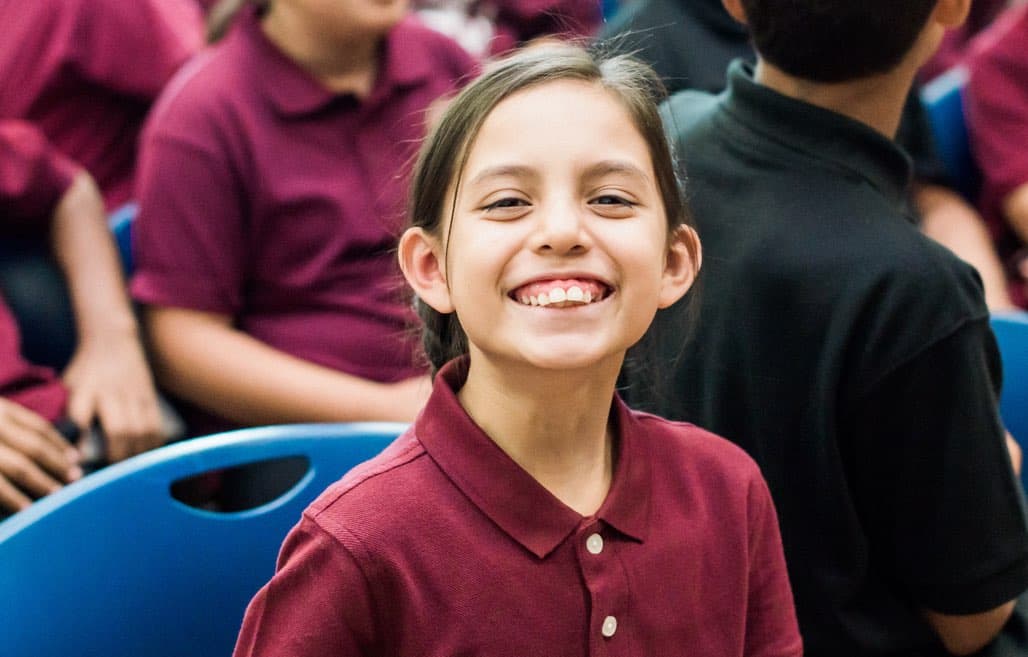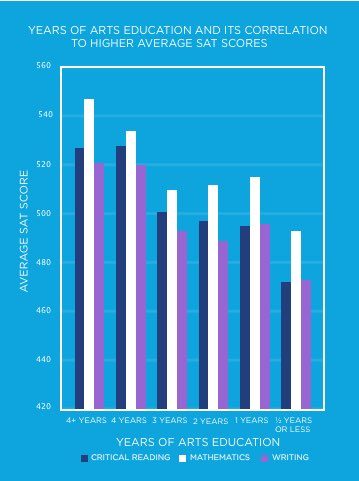HOW CAN MUSIC HELP STUDENTS SUCCEED?
“If active engagement with music increases positive perceptions of self, this may transfer to other areas of study and increase motivation to persist. There were high correlations between positive self-perception, cognitive competence, self-esteem, and interest and involvement in school music. The confidence and self-beliefs that can accrue from learning to play a musical instrument and performing in public may increase motivation more generally leading to enhanced attainment across the whole curriculum.” (Susan Hallam and Kevin Rodgers, “The Impact of Instrumental Music Learning on Attainment at Age 16: A Pilot Study,” November 2016)
Motivation is crucial in how well children perform at school and is closely linked to self-perceptions of ability, self-efficacy and aspirations.
“Students who participated in Metropolitan Nashville Public Schools* music programs for up to one year had significantly better attendance and graduation rates, higher GPAs and test scores, and lower discipline reports than their non-music peers. Students with more than one year of music participation performed significantly better than their peers with less on each of these indicators.”
*Metro Nashville Public Schools has been a Save The Music Foundation partner district since 1999.
MORE ABOUT THE MUSIC MAKES US BASELINE RESEARCH REPORT
Abstract:
Researchers from the University of Kansas sought to establish a baseline understanding of the effects of existing music programs in the Metropolitan Nashville Public Schools (MNPS) in order to better understand the potential effects and implications of Music Makes Us, an enhanced music program launched in 2011 by the Mayor’s office, music industry leaders, and philanthropists. Music participation was found to have a range of positive effects on student personal, academic, social, and civic outcomes. Specifically, researchers found that increased music participation was positively associated with reduced discipline referrals and increased attendance, grades, on-time graduation, and test scores for over 6,000 students. A smaller group of current music students also participated in a series of surveys and focus groups; their responses showed that music participation has a positive effect on student behaviors and attitudes including identity, motivation, and mood.
Key Findings:
-
Students who participated in MNPS music programs for up to one year had significantly better attendance and graduation rates, higher GPAs and test scores, and lower discipline reports than their non-music peers. Students with more than one year of music participation performed significantly better than their peers with less on each of these indicators.
-
Researchers estimated a causal relationship between music classes, student engagement, and academic achievement. They found that Student Characteristics had a large direct effect on Music Participation, and that School Engagement had an even larger effect on Academic Achievement. Music Participation had direct effects on Academic Achievement and Student Engagement.
-
Current music students tended to identify themselves and the bulk of their “friend group” as being musicians. They attribute academic behaviors such as self-discipline, persistence, and leadership to their participation in music, and reported that skills learned in music class transferred to other academic subjects including mathematics, literature, and foreign language. They described music participation as a motivator for demonstrating positive self-behaviors, specifically attendance. These students also reported that music class had positive effects on their mood, making them feel happier, less stressed, and more accomplished.


